- About
- Mission Statement
Education. Evidence. Regrowth.
- Education.
Prioritize knowledge. Make better choices.
- Evidence.
Sort good studies from the bad.
- Regrowth.
Get bigger hair gains.
Team MembersPhD's, resarchers, & consumer advocates.
- Rob English
Founder, researcher, & consumer advocate
- Research Team
Our team of PhD’s, researchers, & more
Editorial PolicyDiscover how we conduct our research.
ContactHave questions? Contact us.
Before-Afters- Transformation Photos
Our library of before-after photos.
- — Jenna, 31, U.S.A.
I have attached my before and afters of my progress since joining this group...
- — Tom, 30, U.K.
I’m convinced I’ve recovered to probably the hairline I had 3 years ago. Super stoked…
- — Rabih, 30’s, U.S.A.
My friends actually told me, “Your hairline improved. Your hair looks thicker...
- — RDB, 35, New York, U.S.A.
I also feel my hair has a different texture to it now…
- — Aayush, 20’s, Boston, MA
Firstly thank you for your work in this field. I am immensely grateful that...
- — Ben M., U.S.A
I just wanted to thank you for all your research, for introducing me to this method...
- — Raul, 50, Spain
To be honest I am having fun with all this and I still don’t know how much...
- — Lisa, 52, U.S.
I see a massive amount of regrowth that is all less than about 8 cm long...
Client Testimonials150+ member experiences.
 Scroll DownPopular Treatments
Scroll DownPopular Treatments- Treatments
Popular treatments. But do they work?
- Finasteride
- Oral
- Topical
- Dutasteride
- Oral
- Topical
- Mesotherapy
- Minoxidil
- Oral
- Topical
- Ketoconazole
- Shampoo
- Topical
- Low-Level Laser Therapy
- Therapy
- Microneedling
- Therapy
- Platelet-Rich Plasma Therapy (PRP)
- Therapy
- Scalp Massages
- Therapy
More
IngredientsTop-selling ingredients, quantified.
- Saw Palmetto
- Redensyl
- Melatonin
- Caffeine
- Biotin
- Rosemary Oil
- Lilac Stem Cells
- Hydrolyzed Wheat Protein
- Sodium Lauryl Sulfate
More
ProductsThe truth about hair loss "best sellers".
- Minoxidil Tablets
Xyon Health
- Finasteride
Strut Health
- Hair Growth Supplements
Happy Head
- REVITA Tablets for Hair Growth Support
DS Laboratories
- FoliGROWTH Ultimate Hair Neutraceutical
Advanced Trichology
- Enhance Hair Density Serum
Fully Vital
- Topical Finasteride and Minoxidil
Xyon Health
- HairOmega Foaming Hair Growth Serum
DrFormulas
- Bio-Cleansing Shampoo
Revivogen MD
more
Key MetricsStandardized rubrics to evaluate all treatments.
- Evidence Quality
Is this treatment well studied?
- Regrowth Potential
How much regrowth can you expect?
- Long-Term Viability
Is this treatment safe & sustainable?
Free Research- Free Resources
Apps, tools, guides, freebies, & more.
- Topical Finasteride Calculator
- Interactive Guide: What Causes Hair Loss?
- Free Guide: Standardized Scalp Massages
- 7-Day Hair Loss Email Course
- Ingredients Database
- Interactive Guide: Hair Loss Disorders
- Treatment Guides
- Product Lab Tests: Purity & Potency
- Evidence Quality Masterclass
More
Articles100+ free articles.
-
Cannabidiol (CBD) Increases Hair Counts By 246%? Not So Fast.
-
Creatine: Does It Worsen Hair Loss? It Depends On The Hair Loss Type.
-
Can Progesterone Improve Hair Regrowth?
-
CRABP2: Can This Gene Predict Regrowth From Retinoids?
-
BTD: Can This Gene Predict Regrowth From Biotin?
-
COL1A1: Can This Gene Predict Regrowth From Collagen Support?
-
2dDR For Hair Loss: What Do We Know So Far About This Sugar?
-
CYP19A1: Can This Gene Predict Regrowth From Hormone Therapy?
PublicationsOur team’s peer-reviewed studies.
- Microneedling and Its Use in Hair Loss Disorders: A Systematic Review
- Use of Botulinum Toxin for Androgenic Alopecia: A Systematic Review
- Conflicting Reports Regarding the Histopathological Features of Androgenic Alopecia
- Self-Assessments of Standardized Scalp Massages for Androgenic Alopecia: Survey Results
- A Hypothetical Pathogenesis Model For Androgenic Alopecia:Clarifying The Dihydrotestosterone Paradox And Rate-Limiting Recovery Factors
Menu- AboutAbout
- Mission Statement
Education. Evidence. Regrowth.
- Team Members
PhD's, resarchers, & consumer advocates.
- Editorial Policy
Discover how we conduct our research.
- Contact
Have questions? Contact us.
- Before-Afters
ArticlesNR3C1: Can This Gene Predict Responsiveness to Glucocorticoids?
First Published Aug 21 2024Last Updated Oct 29 2024Pharmaceutical Researched & Written By:Sarah King, PhD
Researched & Written By:Sarah King, PhD Reviewed By:Rob English, Medical Editor
Reviewed By:Rob English, Medical Editor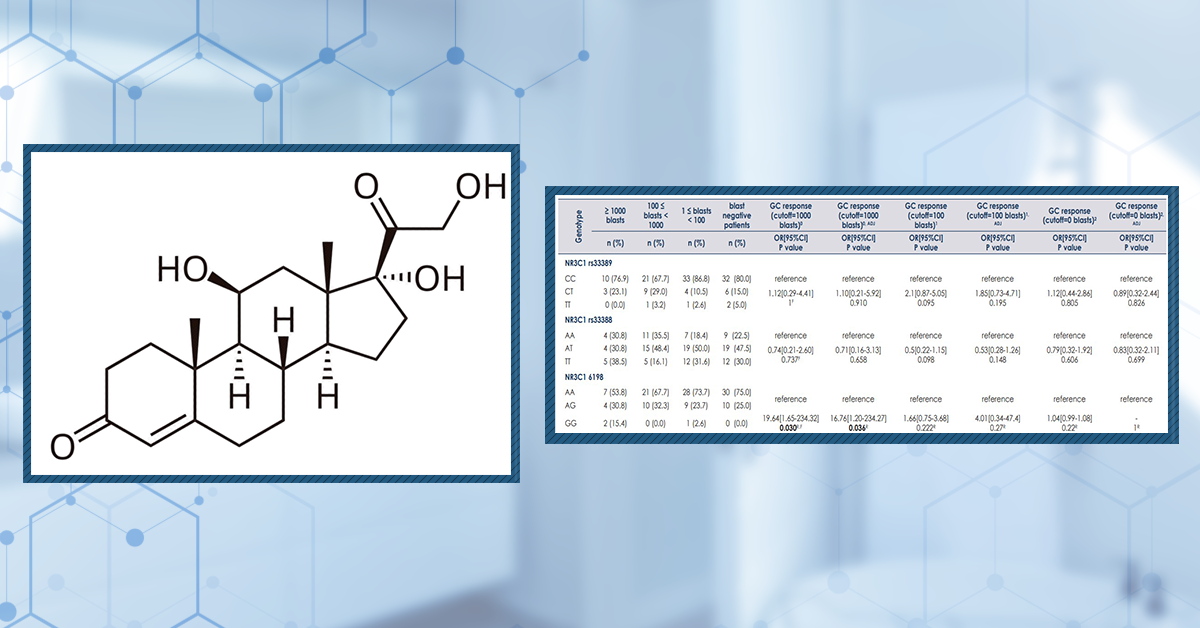
Want help with your hair regrowth journey?
Get personalized support, product recommendations, video calls, and more from our researchers, trichologists, and PhD's dedicated to getting you the best possible outcomes.
Learn MoreArticle Summary
The NR3C1 gene codes for the glucocorticoid receptor, a key player in the regulation of metabolism, immune response, and stress adaptation. Variations in the NR3C1 gene, such as the rs6198 SNP, have been linked to differences in glucocorticoid sensitivity with some variants leading to increased expression of the GRβ isoform. While some companies say that this variation can predict treatment responsiveness to glucocorticoids in alopecia areata, there is a distinct lack of evidence. This article delves into the implications of NR3C1 polymorphisms for glucocorticoid responsiveness and evaluates the current evidence on how these genetic variations might affect therapeutic outcomes.
Full Article
The NR3C1 gene encodes the glucocorticoid receptor, which is essential for mediating the effects of glucocorticoids in various physiological processes, including metabolism, immune response, and stress regulation. This receptor plays a critical role in the body’s ability to respond to glucocorticoid medications, making it a key factor in conditions treated with these drugs.
This article will delve into the role of NR3C1 in glucocorticoid responsiveness and the evidence (or lack thereof) supporting it as a target for hair loss.
What is NR3C1?
The NR3C1 gene codes for the glucocorticoid receptor (GR). This receptor is involved in various physiological processes, including metabolism regulation, immune response, and stress response.[1]GeneCards. (no date). NR3C1 Gene – Nuclear Receptor Subfamily 3 Group C Member 1. GeneCards. Available at: … Continue reading. Glucocorticoids are a type of steroid used to treat inflammatory and autoimmune diseases as well as cancer.[2]Strehl, C., Ehlers, L., Gaber, T., Butthereit, F. (2019). Glucocorticoids – All Rounders Tackling the Versatile Players of the Immune System. Frontiers in Immunology. 10 GR is necessary for … Continue reading
What is the Evidence for Targeting NR3C1 for Hair Loss?
GR is essential for glucocorticoids to exert their effects. There are two isoforms of GR encoded by the NR3C1 gene: GRα and GRβ. GRα is the classic GR protein, mediating the action of glucocorticoids.
GRβ contains a unique extra sequence that gives it several distinct properties: GRβ does not bind to activators of glucocorticoids, resides in the nucleus of the cells, and is by itself inactive. However, when expressed alongside GRα, GRβ inhibits the activity of GRα.[3]Oakley, R.H., Cidlowski, J.A. (2013). The Biology of the Glucocorticoid Receptor: New Signaling Mechanisms in Health and Disease. Journal of Allergy and Clinical Immunology. 132(5). 1033-1044. … Continue reading
Simply put, if GRꞵ binds to GRɑ, it stops it from working correctly. This can lead to reduced sensitivity or even resistance to glucocorticoids in tissues expressing GRβ at higher levels.
In one retrospective study involving 122 children with acute lymphoblastic leukemia, researchers found that a specific genetic variant, called rs6198, can affect how the body responds to glucocorticoid medications.[4]Gasic, V., Zukic, B., Stankovic, B., Janic, D., Dokmanovic, L., Lazic, J., Krstovski, N., Dolzan, V., Jazbec, J., Pavlovic, S., Kotur, N. (2018). Pharmacogenomic Markers of Glucocorticoid Response in … Continue reading
When a patient had the GG allele variant, it was found that it stabilized the messenger RNA (mRNA), which is the molecule that carries instructions from DNA to make proteins. This stabilization leads to more of a particular form of the glucocorticoid receptor, which doesn’t bind to the medication as well as the normal form.
Because this receptor doesn’t bind well, the treatment may not work as effectively, which could explain why some patients developed resistance to glucocorticoid therapy. This means their bodies don’t respond as well to the treatment, making it less effective in controlling their condition.

Figure 1: Genotype frequencies associated with glucocorticoid response. The bold numbers indicate a significant difference. NR3C1 6198 shows a significant association with glucocorticoid resistance.[5]Gasic, V., Zukic, B., Stankovic, B., Janic, D., Dokmanovic, L., Lazic, J., Krstovski, N., Dolzan, V., Jazbec, J., Pavlovic, S., Kotur, N. (2018). Pharmacogenomic Markers of Glucocorticoid Response in … Continue reading
What is the Evidence Against Targeting NR3C1 for Hair Loss?
Some companies that test your genotype to suggest treatments use this gene as a marker for glucocorticoid sensitivity. While the evidence suggests that variations of NR3C1 can negatively affect glucocorticoid receptor activity, there is no published evidence showing that there are subsequent effects on corticosteroid treatment responsiveness in hair.
What Do Your Genetic Results Mean?
Your Result NR3C1 (rs6198)
Variant 1 GG genotype
Variant 2 GA genotype Variant 3 AA genotype
What it means Increased expression of the GRβ isoform Moderate expression of the GRβ isoform Normal expression of GR and less expression of the GRβ isoform The Implication You may want to avoid glucocorticoid treatment You may respond less well to glucocorticoid treatment You may respond normally to glucocorticoid treatment What Relevance Does NR3C1 Have For Hair Loss Treatment?
We have also created a rubric that helps to determine the relevance of a specific gene to hair loss based on the quality of the evidence in the above studies.
On a scale of 1-5, how important are these genetic results? (1 is the lowest, 5 is the highest)
This score is a rating based on evidence quality.
- Does this gene have any potential relevance for hair loss? (1 point)
Yes. Due to the inhibitory effect of GRβ on GR activity, this variation may affect response to glucocorticoid treatment in cases of hair loss. (score = 1)
- Does the totality of evidence implicate GRα as a causal agent for hair loss? (1 point)
No, there doesn’t appear to be any evidence implicating GRα in hair loss.
- Does the totality of evidence implicate GRα as a predictive factor for hair loss treatment responsiveness? (2 points)
While there is evidence to suggest that the activity of GRα may be affected by this variation, there is no published evidence to indicate that it can predict responsiveness to glucocorticoid treatment. (score = 0)
- Is this quality of evidence on (3) strong enough to influence treatment recommendations? (1 point)
No, the quality of evidence is not strong enough to influence treatment recommendations due to the lack of published evidence. (score = 0)
Total Score = 1
Final Thoughts
The NR3C1 gene, which encodes the glucocorticoid receptor, plays a crucial role in various physiological processes, including stress response and inflammation. While variations in the gene, particularly the rs6198 variant, have been linked to altered glucocorticoid sensitivity, the evidence for its role in hair loss remains inconclusive. Therefore, more research is needed to determine its relevance and utility in predicting or treating hair loss.
References[+]
References ↑1 GeneCards. (no date). NR3C1 Gene – Nuclear Receptor Subfamily 3 Group C Member 1. GeneCards. Available at: https://www.genecards.org/cgi-bin/carddisp.pl?gene=NR3C1#:~:text=This%20gene%20encodes%20glucocorticoid%20receptor,regulator%20of%20other%20transcription%20factors. (Accessed: July 2024) ↑2 Strehl, C., Ehlers, L., Gaber, T., Butthereit, F. (2019). Glucocorticoids – All Rounders Tackling the Versatile Players of the Immune System. Frontiers in Immunology. 10 GR is necessary for glucocorticoids to bind to and exert their biological effects. 10. 1-20. Available at: https://doi.org/10.3389/fimmu.2019.01744 ↑3 Oakley, R.H., Cidlowski, J.A. (2013). The Biology of the Glucocorticoid Receptor: New Signaling Mechanisms in Health and Disease. Journal of Allergy and Clinical Immunology. 132(5). 1033-1044. Available at: https://doi.org/10.1016/j.jaci.2013.09.007 ↑4 Gasic, V., Zukic, B., Stankovic, B., Janic, D., Dokmanovic, L., Lazic, J., Krstovski, N., Dolzan, V., Jazbec, J., Pavlovic, S., Kotur, N. (2018). Pharmacogenomic Markers of Glucocorticoid Response in The Initial Phase of Remission Induction Therapy in Childhood Acute Lymphoblastic Leukemia. Radiology and Oncology. 52(3). 296-306. Available at: https://doi.org/10.2478/raon-2018-0034 ↑5 Gasic, V., Zukic, B., Stankovic, B., Janic, D., Dokmanovic, L., Lazic, J., Krstovski, N., Dolzan, V., Jazbec, J., Pavlovic, S., Kotur, N. (2018). Pharmacogenomic Markers of Glucocorticoid Response in The Initial Phase of Remission Induction Therapy in Childhood Acute Lymphoblastic Leukemia. Radiology and Oncology. 52(3). 296-306. Available at: https://doi.org/10.2478/raon-2018-0034 Want help with your hair regrowth journey?
Get personalized support, product recommendations, video calls, and more from our researchers, trichologists, and PhD's dedicated to getting you the best possible outcomes.
Learn More
Sarah King, PhD
Dr. Sarah King is a researcher & writer who holds a BSc in Medical Biology, an MSc in Forensic Biology, and a Ph.D. in Molecular and Cellular Biology. While at university, Dr. King’s research focused on cellular aging and senescence through NAD-dependent signaling – along with research into prostaglandins and their role in hair loss. She is a co-author on several upcoming manuscripts with the Perfect Hair Health team.
"... Can’t thank @Rob (PHH) and @sanderson17 enough for allowing me to understand a bit what was going on with me and why all these [things were] happening ... "
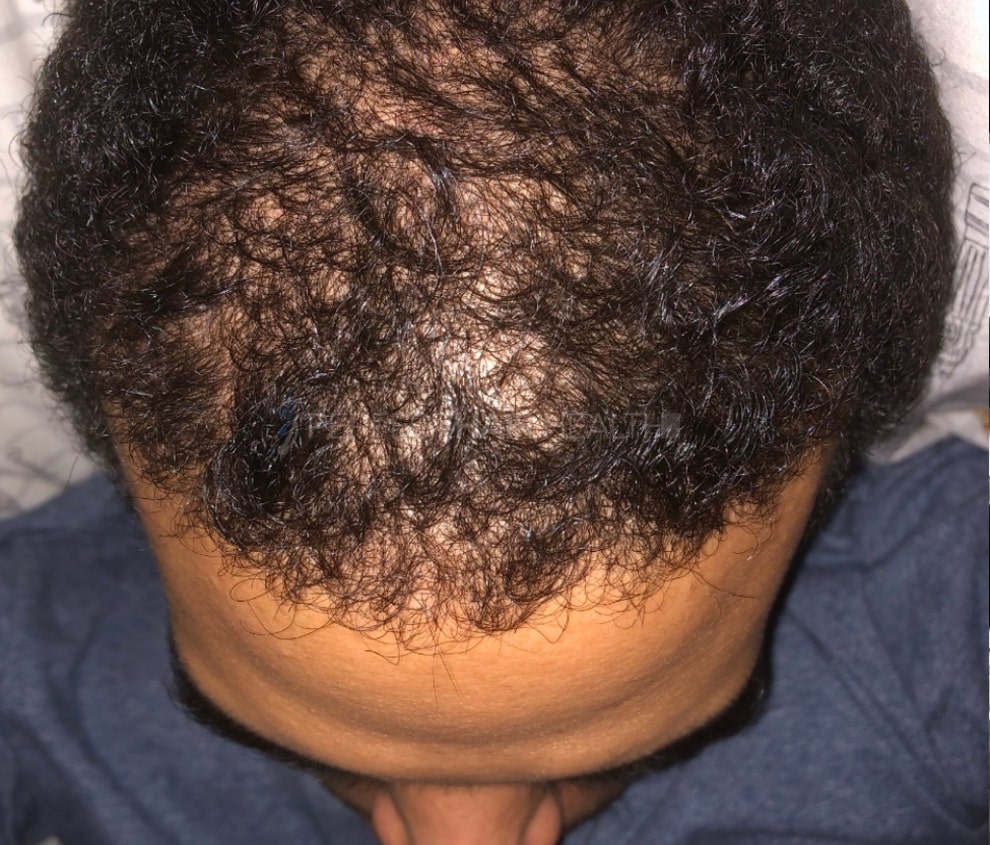
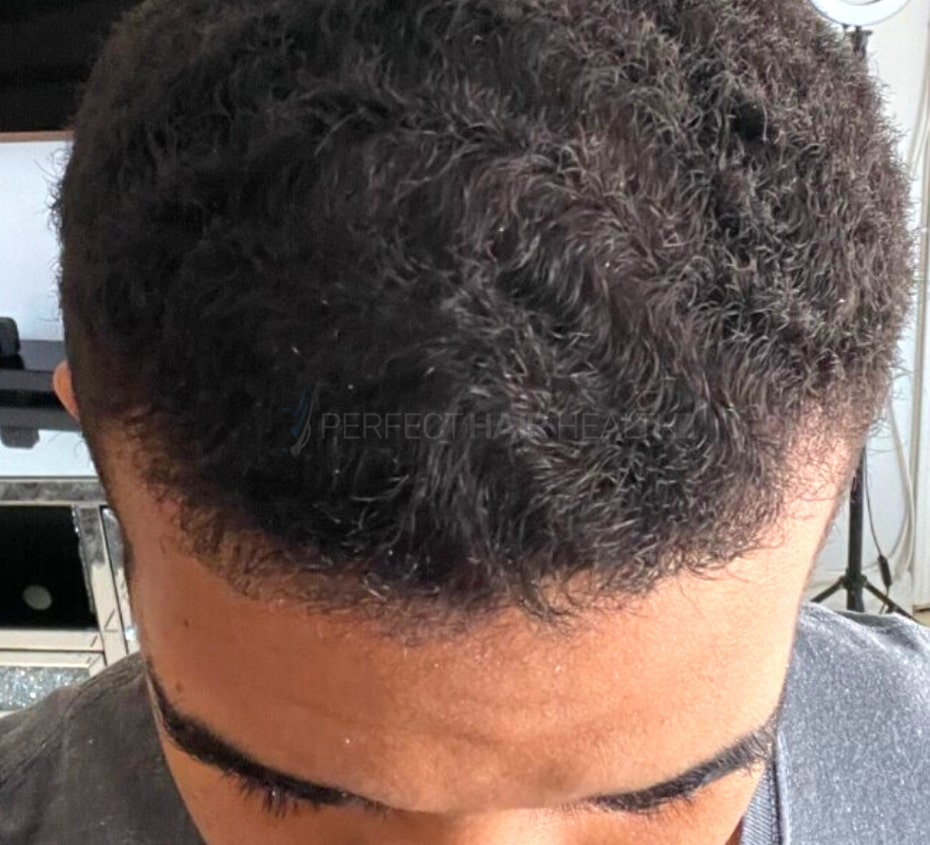 — RDB, 35, New York, U.S.A.
— RDB, 35, New York, U.S.A."... There is a lot improvement that I am seeing and my scalp feel alive nowadays... Thanks everyone. "
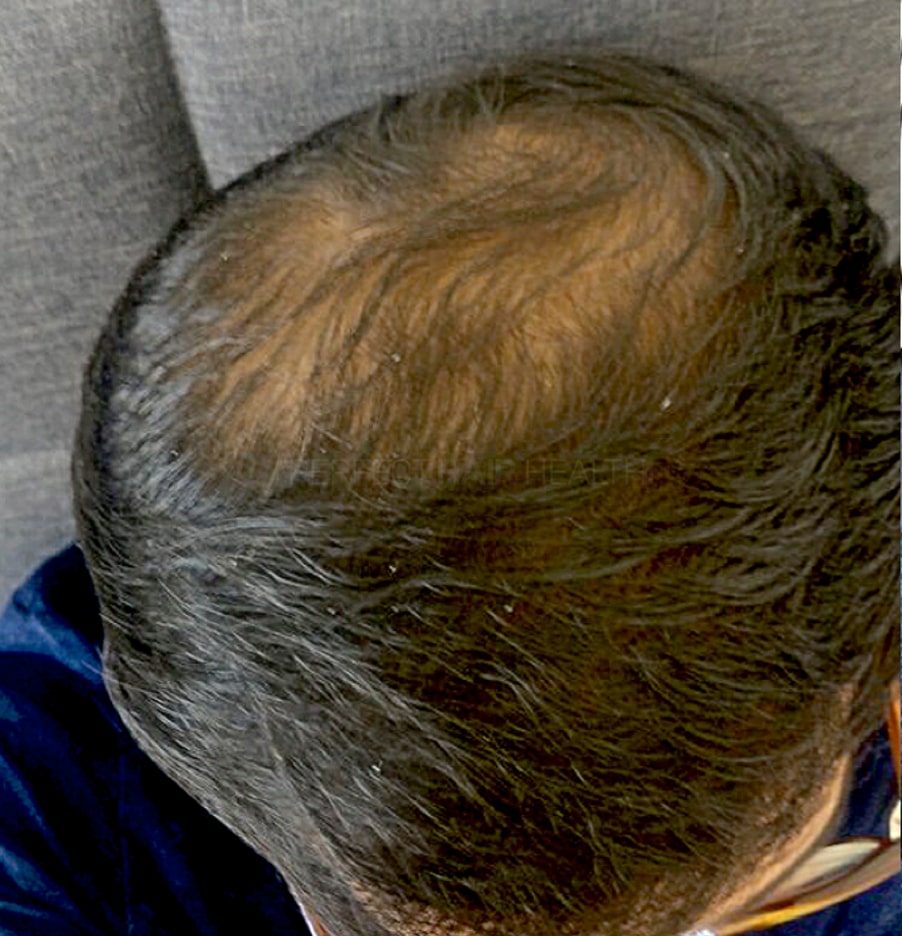
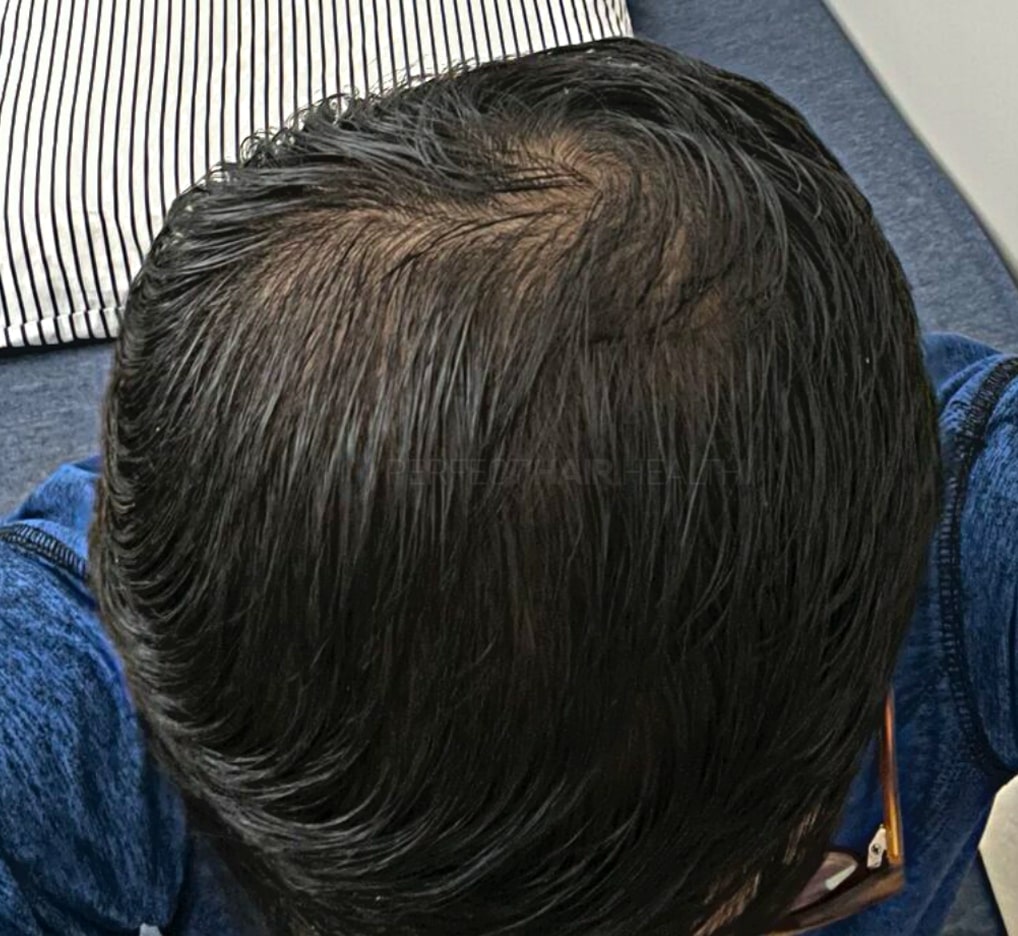 — Aayush, 20’s, Boston, MA
— Aayush, 20’s, Boston, MA"... I can say that my hair volume/thickness is about 30% more than it was when I first started."
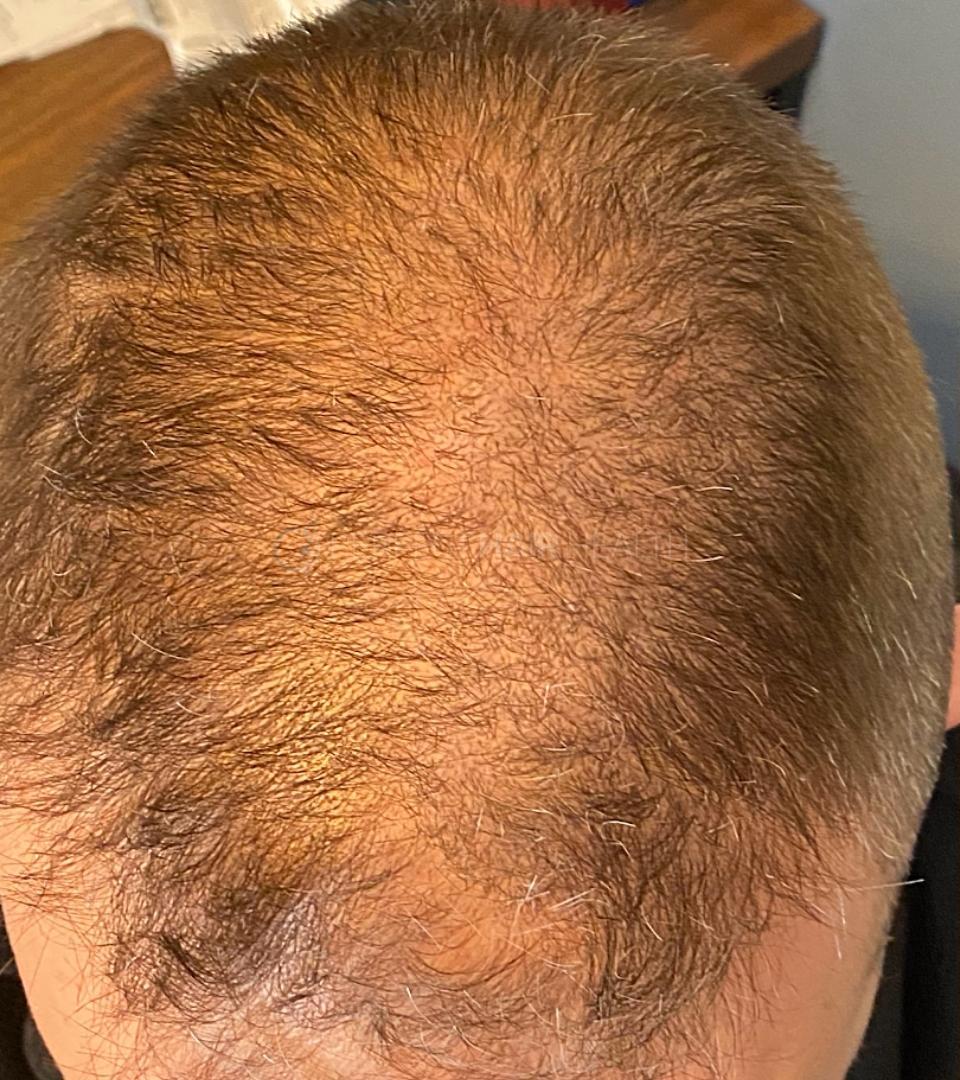
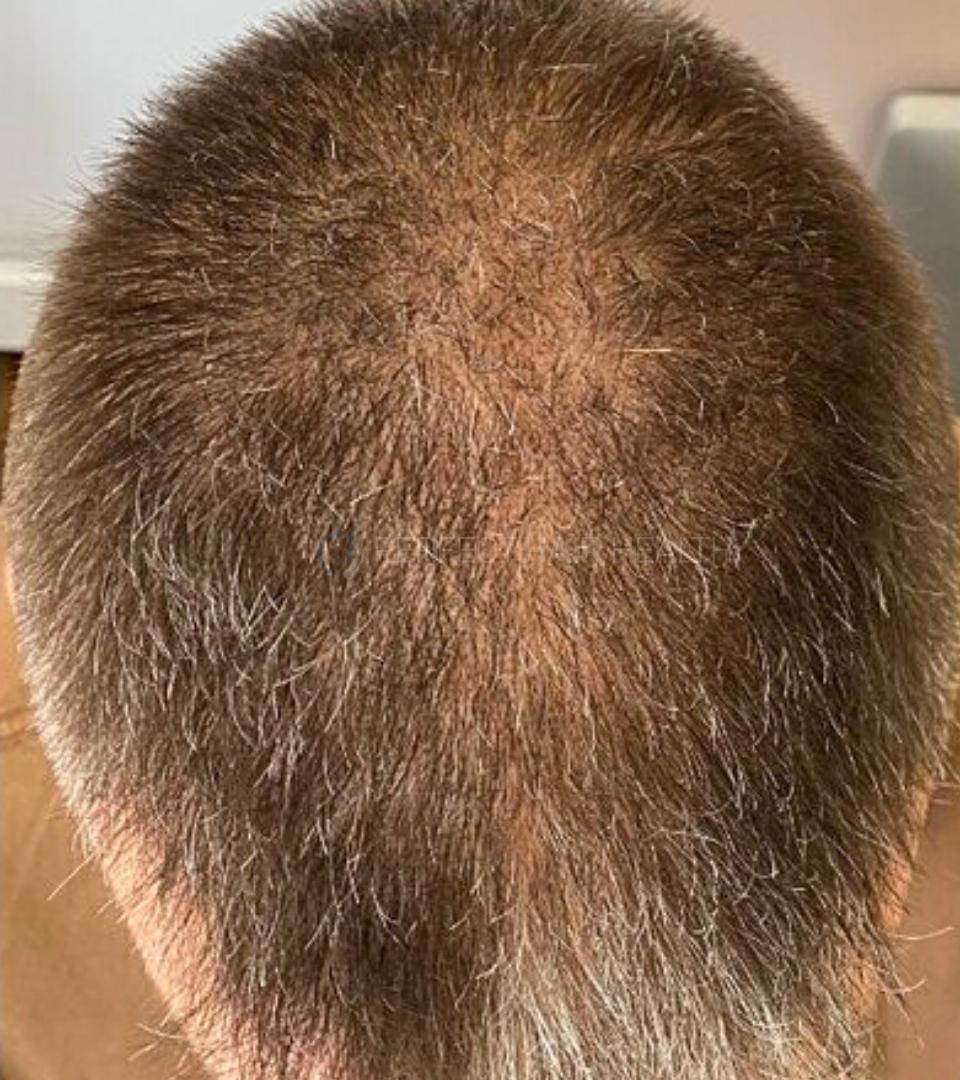 — Douglas, 50’s, Montréal, Canada
— Douglas, 50’s, Montréal, CanadaWant help with your hair regrowth journey?
Get personalized support, product recommendations, video calls, and more from our researchers, trichologists, and PhD's dedicated to getting you the best possible outcomes.
Join Now - Mission Statement